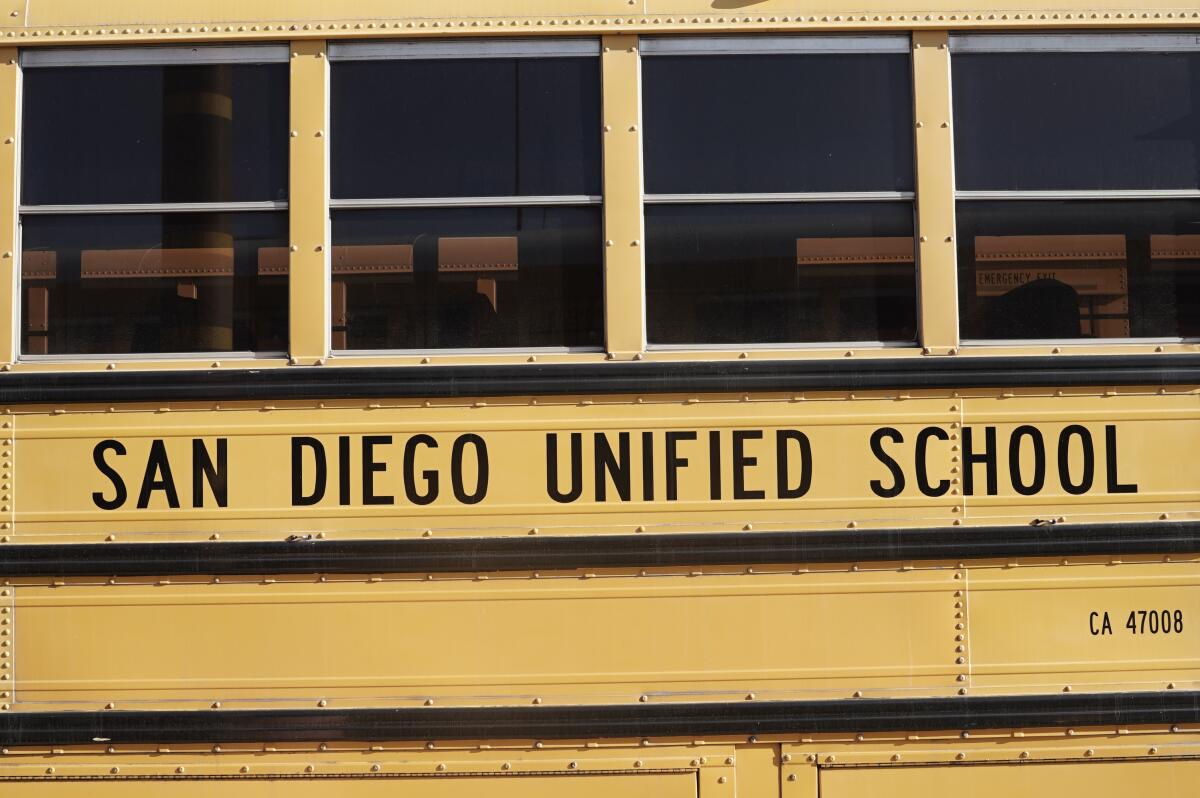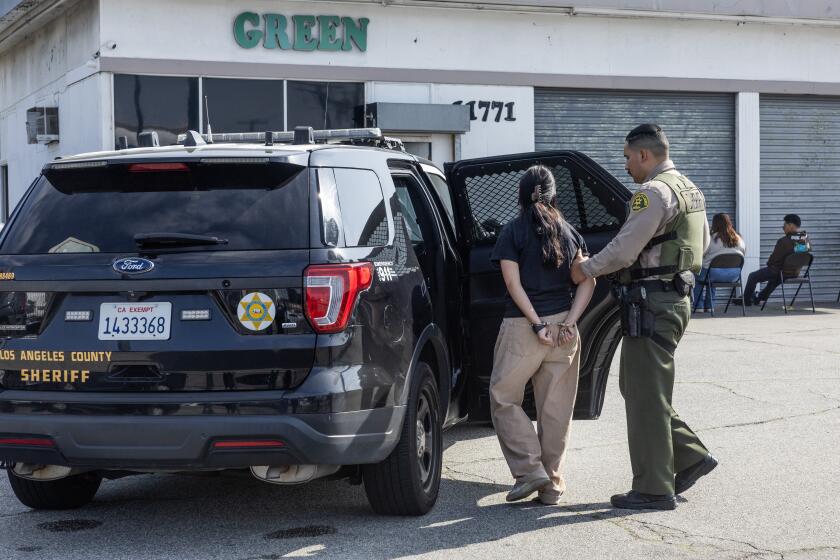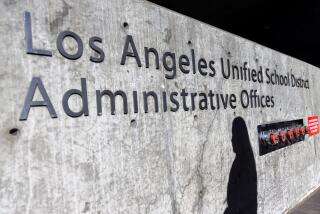San Diego Unified left students ‘vulnerable’ to sex abuse, federal officials say, but that ends now

- Share via
San Diego Unified School District officials mishandled multiple student complaints about sexual harassment and sexual assault, in violation of their obligations under federal law, the U.S. Department of Education’s Office of Civil Rights announced Friday.
The office found that over a year-three span, 253 reports and complaints of sexual harassment and assault were leveled by students in the district, with almost 40% of those allegations coming from the elementary school level.
The accusations included “student-to-student” and “employee-to-student” misconduct that potentially violated federal statutes including Title IX, according to the Office of Civil Rights, which said the district “more often than not did not fulfill its Title IX regulatory requirement to equitably respond to allegations of sexual harassment of its students.”
The office also announced a resolution, saying Friday morning that the school district had entered an agreement with federal officials to remedy the violations.
Such abuses had “led to serial perpetration of harassment with insufficient district response, leaving district students vulnerable to the sex discrimination in school,” the office said in a news release.
“Through today’s resolution, San Diego Unified commits to overhaul its response to allegations of sexual harassment to ensure all its students learn safely and without sex or disability discrimination,” Assistant Secretary for Civil Rights Catherine E. Lhamon said in a statement.
San Diego Unified said in a separate statement Friday evening that the district “remains committed to the safety and wellbeing of all students, and continuously works to assess and improve Title IX compliance.”
The statement continued: “The district holds itself to the highest standards to ensure that students are never harmed, and has a responsibility to acknowledge when harm does occur to maintain transparency and accountability.”
San Diego Unified Board President Shana Hazan said “it is disappointing and disheartening” to learn about the district’s shortcomings” but was “committed to addressing the harm caused.”
San Diego Unified serves 121,000 students in traditional, special education, adult, alternative and charter schools, making it California’s second-largest school district, behind Los Angeles Unified.
The Poway Unified board voted to dismiss Marian Kim Phelps after students alleged she threatened to ban them from graduation ceremonies for not applauding her daughter enough at a banquet.
The Office of Civil Rights reported that 98 of the 253 allegations of sexual harassment or assault of students took place at the elementary school level, and said that nine involved employees.
One such elementary school incident involved a student accused of forcing another student to place their hands on a third student’s clothes over their genitals multiple times. District police investigated the incident and the district filed a report with Child Protective Services.
But according to the Office of Civil Rights, the district did not do any further investigation into whether the accused student had sexually harassed fellow students, and didn’t interview anyone involved in the incident.
There were an additional 15 reports involving schools with kindergarteners through eighth-graders; as well as 79 from middle schools; 68 from high schools; and three involving special education. A total of five allegations of employee-to-student incidents came from middle schools and high schools combined, according to the report.
The number of incidents reported in each category add up to more than the total of 253 cited by the Office of Civil Rights; it offered no explanation for the discrepancy.
The district was in litigation over seven cases of alleged sexual assault at the time of the report’s release.
Unlicensed shops remain a common sight in commercial districts across L.A. County, but 125 miles south the same problem has essentially been solved.
The agreement signed by San Diego Unified calls for the district to make several changes, including:
- Reviewing previous incidents of student-to-student and employee-to-student sexual harassment to determine whether further action is needed for an equitable resolution.
- Giving annual age-appropriate training to third- through 12-graders on how to recognize and report sexual harassment and where to seek support and remedies.
- Surveying parents, students and district employees annually about sexual harassment in schools.
- Reviewing district policies against sex discrimination, including sexual harassment, and its Title IX grievance procedures to ensure they comply with the law.
- Giving annual training to district employees on their obligations to respond to such allegations, including those involving students with disabilities.
- Implementing a system and policy for maintaining data and records on reports, complaints and investigations of sexual harassment, to be approved by the Office of Civil Rights.
- Ensuring the district fulfills its obligations under Title IX even when law enforcement responds to reports of sexual harassment of students.
“As a district parent, I trust that my own children will be protected from harm because the district has taken decisive action to protect our students from sexual harassment,” Hazan said.
She added the district has since established a new office of investigations, compliance and accountability and is in the process of enhancing procedures for documenting and addressing complaints.
The Education Department’s Office of Civil Rights “looks forward to working with the district to redress serial perpetration, protect students with disabilities from being preyed upon, and ensure that district students can expect to focus on learning without unlawful sexual harassment,” said Lhamon, the office’s assistant secretary.
More to Read
Sign up for Essential California
The most important California stories and recommendations in your inbox every morning.
You may occasionally receive promotional content from the Los Angeles Times.













